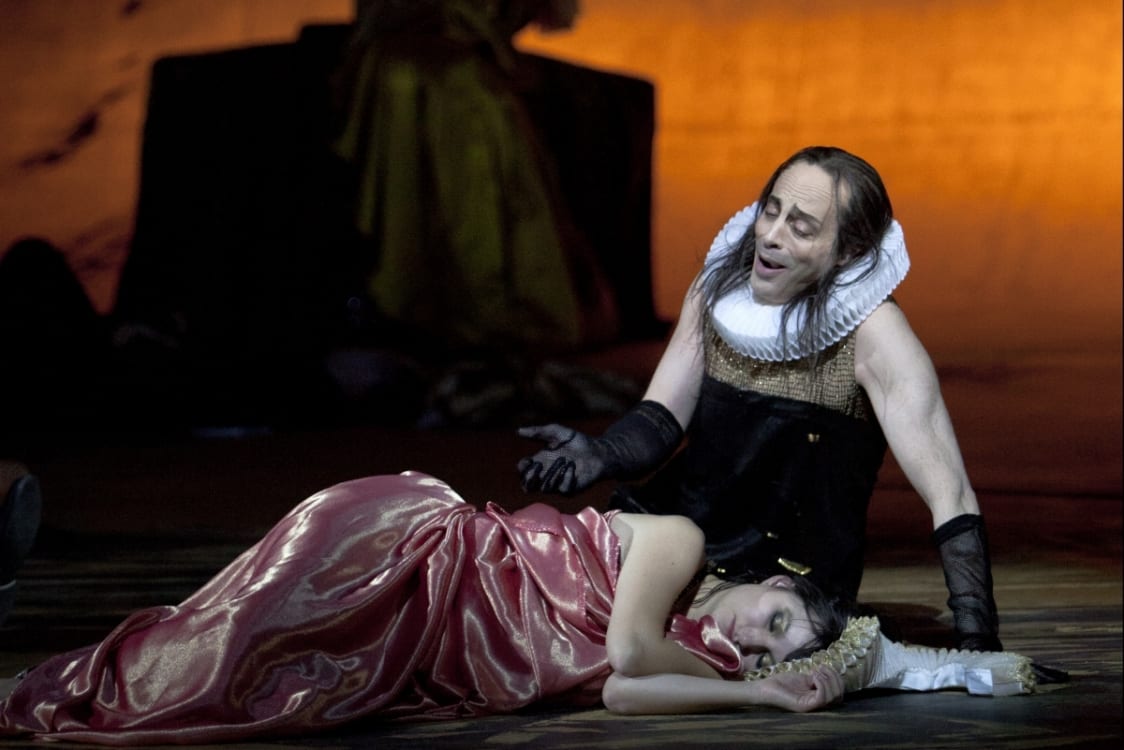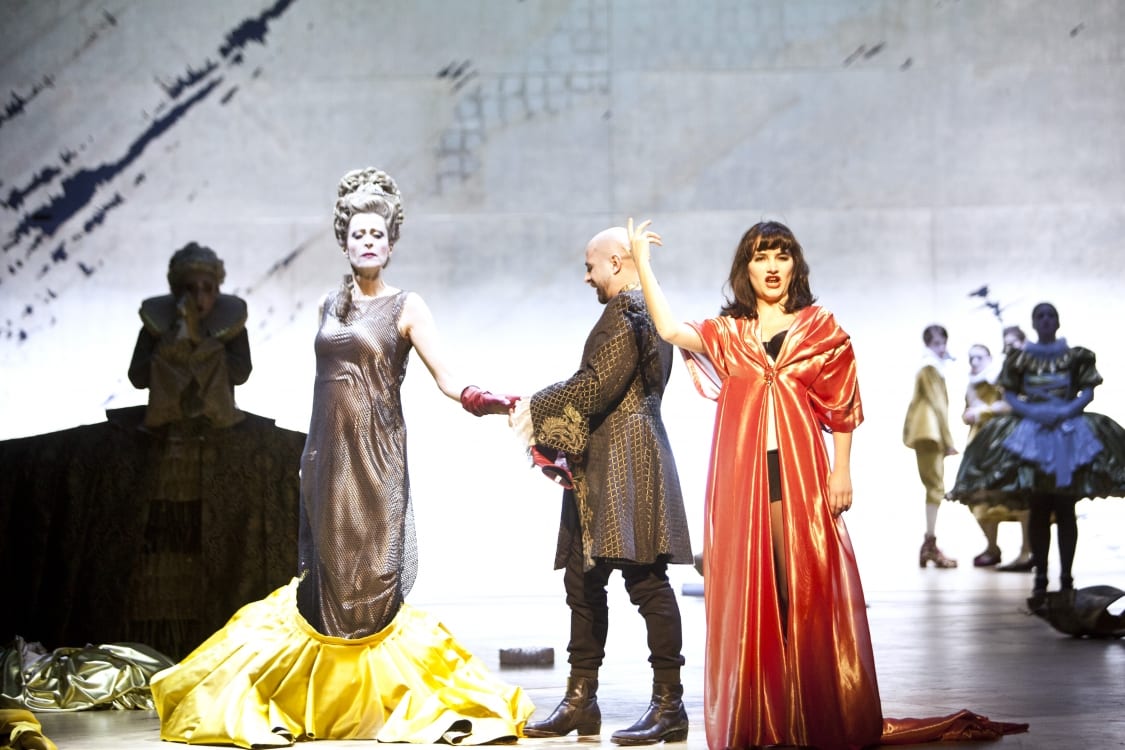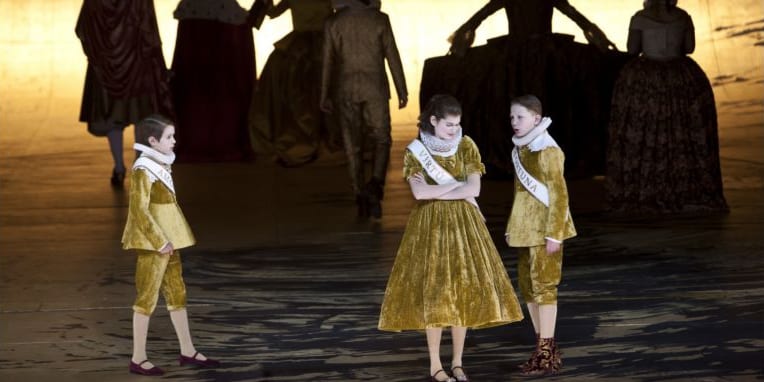Monteverdi’s L’incoronazione di Poppea, one of the first operas to open in the freshly renovated Staatsoper unter den Linden last winter, closes the season in tandem with Salvatore Sciarrino’s Ti vedo, ti sento, mi perdo. Both productions engage the spirit of the 17th century, with long reaches to and from the 21st. Monteverdi’s opera, created for the freshly inaugurated system of public theatres in Venice, emerges as a visually penetrating exploration of court intrigue under Eva-Maria Höckmayr’s direction, with the cast of twenty remaining onstage throughout. Jens Kilian’s bold and steeply raked stage arches seamlessly upward, casting a range of tarnished golden hues as corruption takes it toll.

The action starts deceptively as child’s play, with a trio of young artists as the Prologue’s allegorical figures. Artina Kapreljan sings the role of Virtù admirably, while Noah Schurz swiftly yields the role of Amore to Lucia Cirillo, cannily cast as a gender-bending role. Cirillo later sings the part of the young servant boy Valletto, lover to Narine Yeghiyan’s Damigella (also Fortuna). The edition created for this production thankfully includes the flirtation scene for these two servants, which yields the most harmonious and sensuous vocal pairing of the evening. When the opera opens, Yeghiyan is one of four servants dressed in plasticky bright gold dresses; two remain mute, while the other sheds her garb to become the social climber par excellence. As Poppea, Roberto Mameli is an exciting, multifaceted actress, with a rich and varied voice—her lushness often yields to a more direct style in accordance with this production’s emphasis on Poppea’s recklessness. As her nurse Arnalta, here a seedy crossdresser, Mark Milhofer trumped all in terms of characterization. Arnalta’s aspiration to usurp Ottavia’s nurse driving much of the subplot.
Höckmayr’s strategy of having everyone visible enables blocking arrangements which expose power struggles and frame intimate scenarios with witnesses who silently respond with curiosity, shock, anger, or turn their backs. The advice of Octavia’s nurse holds true: when her mistress complains about Nero’s infidelity, the nurse urges Ottavia to satisfy herself independently with other lovers, remarking that some who might hear of this would not believe it, while others more knowing would keep silent. (Jochen Kowalski no longer satisfactorily negotiates such a role vocally, but excels in spoken parts such as Hamlet’s father in Anno Schreier’s Hamlet, essayed last season at the Theater an der Wien). Ottavia’s over-arching presence gains strength from the noble and statuesque Katharina Kemmerloher, who has the popular vote. Like Seneca, sung and acted authoritatively by Andrea Mastroni, Ottavia is decadently costumed (designs by Julia Rösler), although in the philosopher’s case his remove from the common folk leaves him open to criticism. Seneca’s death scene, with “Non morir” sung by nearly all onstage sounds disingenuous rather than yielding a deeply emotional turning point in the drama since they did not appear as his students.

With Seneca dead, Nero’s unbounded sexuality grows to include the poet Lucano, well sung by Andrés Moreno García, and Poppea’s quest for power continues to disentangle itself from a feigned loving union. More subtle treatments can mine the music’s power better; Höckmayr steadily steers the course towards disillusionment instead of revelation in love’s powers. Countertenor Max Emanuel Cencic embodies the malleable Nero aptly and with intensity, his brassy upper range occasionally emerging with surprise. Xavier Sabata’s Ottone benefits from an especially nuanced exploration of character and smooth traversing of vocal registers. His thoughts of revenge are spiked by witnessing Poppea engaged lustfully with Nero and Lucano at once, but his ambivalence runs especially deep as he considers killing her, while Evelin Novak’s Drusilla remains utterly resilient. Diego Fasoli’s light and lively direction of the Akademie für alte Musik Berlin lacks inner energy, and often feels at odds with the production.

